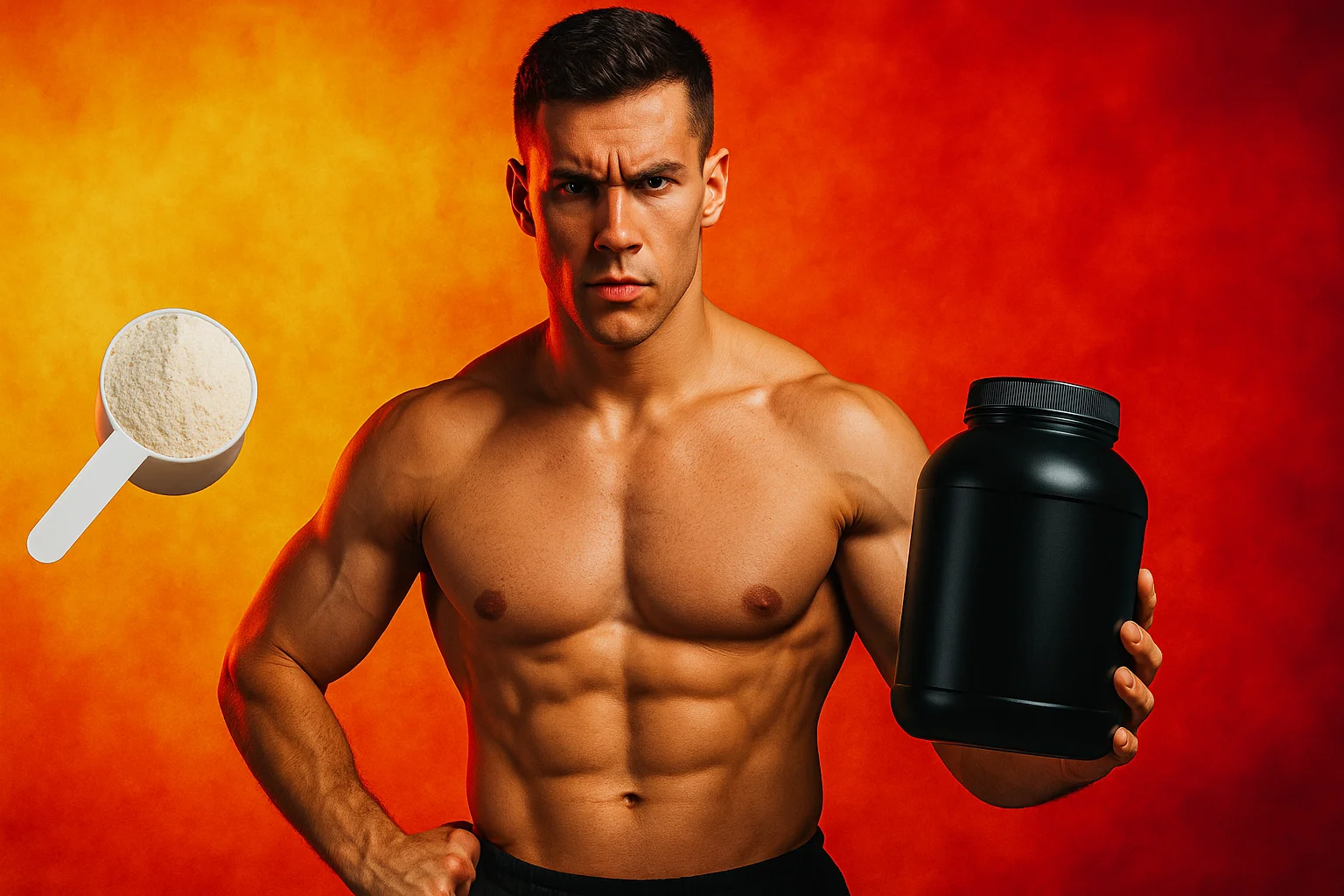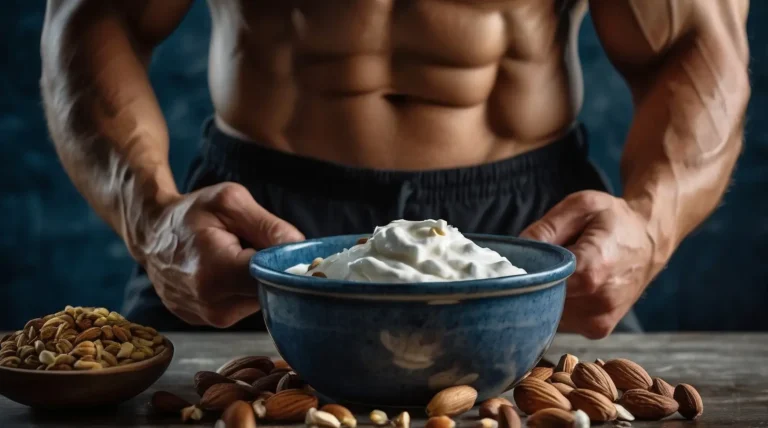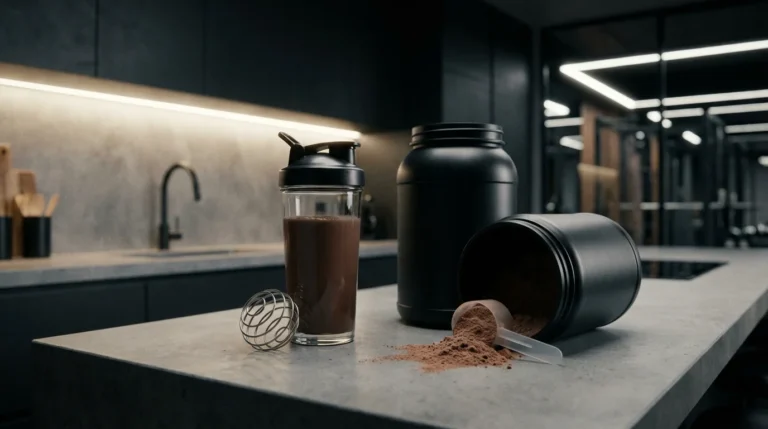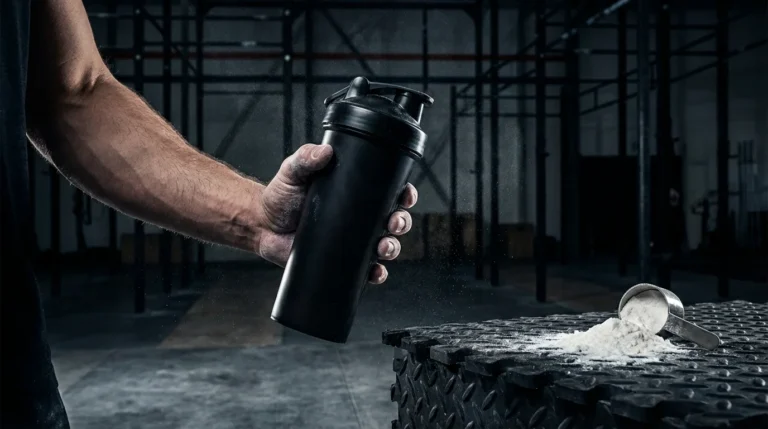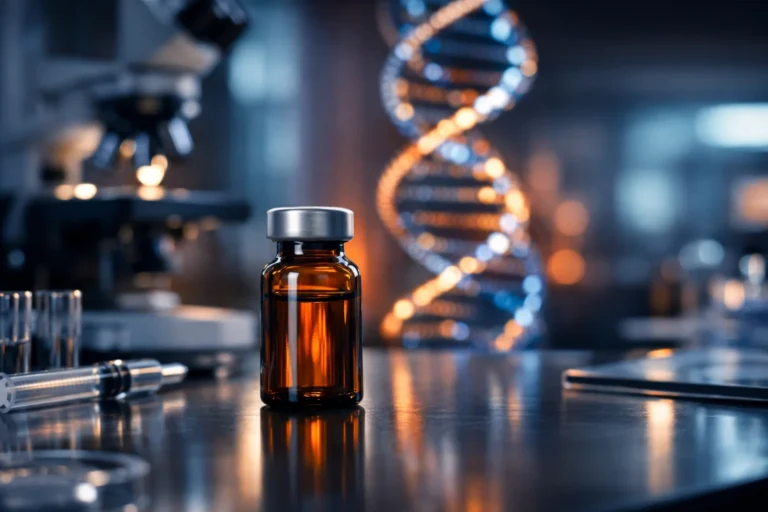Men often look for natural ways to boost their testosterone levels for better health and performance.
One question is whether eating Greek yogurt can help. We’ll look into how Greek yogurt affects testosterone, its benefits, and its limits.
Key Takeaways about Does Greek Yogurt Increase Your Testosterone
- Greek yogurt does not appear to have a significant direct impact on increasing testosterone levels.
- While Greek yogurt offers various health benefits, it is not considered a primary testosterone-boosting food.
- Optimal testosterone levels are influenced by a combination of dietary, lifestyle, and other factors.
- Incorporating a balanced, nutrient-dense diet and adopting healthy lifestyle habits are more effective ways to support natural testosterone production.
- Seeking professional guidance is recommended when addressing concerns about low testosterone or overall hormonal health.
Introduction to Testosterone
What is Testosterone?
Testosterone is the main hormone for males. It helps with many important body functions. It boosts sex drive, helps make bones and muscles, controls body fat and metabolism, and makes red blood cells.
Importance of Testosterone for Men
As men get older, their testosterone levels drop by about 1% each year, starting at 40. Keeping testosterone levels healthy is key for men’s health. It helps with energy, mood, muscle, and sex life.
Studies say normal testosterone levels are between 300 to 1,000 ng/dL. But, levels can change based on age, lifestyle, and health.
“Testosterone is the master hormone for men, governing a wide range of physical and cognitive functions. Maintaining healthy testosterone levels is essential for optimal male health and performance.”
Changing your lifestyle can affect testosterone. Eating right, exercising, and managing stress can help. Foods like lean proteins, healthy fats, and nutrients also support testosterone production.
Normal Testosterone Levels
Keeping testosterone levels healthy is key for men’s health. The normal testosterone levels by age change a lot. Here’s what’s typical for men at different ages:
- Ages 19-39: 229-902 ng/dL
- Ages 40-49: 208-902 ng/dL
- Ages 50-59: 192-902 ng/dL
- Ages 60-69: 190-902 ng/dL
- Ages 70-79: 190-902 ng/dL
- Ages 80-99: 119-902 ng/dL
These testosterone levels are seen as normal. If a man thinks his testosterone might be low, seeing a doctor is key. They can test and check things out.
“Understanding your normal testosterone levels is the first step in maintaining optimal hormonal balance and overall health.”
Checking in regularly and keeping an eye on testosterone levels helps men spot any issues early. Knowing the testosterone range for their age lets men keep their testosterone levels in good shape.
Symptoms of Low Testosterone
Knowing the signs of low testosterone is key. It affects both physical and mental health. Testosterone levels play a big role in a man’s health.
Physical Symptoms
Common physical symptoms of low testosterone are:
- Low libido or decreased sex drive
- Muscle weakness and fatigue
- Slowed metabolism or unintentional weight gain
- Reduced bone density and increased risk of osteoporosis
Mental and Emotional Symptoms
Low T symptoms also affect the mind and feelings. These include:
- Feelings of depression or moodiness
- Irritability or difficulty concentrating (brain fog)
- Difficulty sleeping or insomnia
Seeing a healthcare professional about symptoms of low testosterone is crucial. They can help with diagnosis and treatment. This can balance hormones and improve health.
Knowing all about low testosterone signs helps in taking care of your health. Being aware of the effects on body and mind helps men deal with low T issues.
Foods that Boost Testosterone
Keeping testosterone levels healthy is key for men’s health. Luckily, some foods boost testosterone naturally. Here are the best foods to add to your diet.
Fatty Fish
Fish like salmon, tuna, and sardines are full of omega-3 fatty acids and vitamin D. These nutrients help make testosterone. Eating these testosterone boosting foods often keeps hormone levels right.
Eggs
Eggs, especially their yolks, are great for testosterone. They have lots of protein, healthy fats, and selenium. These help keep male hormones balanced.
Leafy Greens
Spinach and collard greens are packed with magnesium, a key mineral for testosterone. Adding these foods that increase testosterone to your meals helps your body make this hormone.
| Food | Testosterone-Boosting Nutrients |
|---|---|
| Fatty Fish | Omega-3 fatty acids, vitamin D |
| Eggs | Protein, healthy fats, selenium |
| Leafy Greens | Magnesium |
Adding these natural testosterone boosters to your diet helps your body make this important hormone. This can bring many benefits.
“Maintaining healthy testosterone levels is crucial for men’s overall well-being.”
Does Greek Yogurt Increase Testosterone?
Many people wonder if Greek yogurt can help boost testosterone levels. Greek yogurt is packed with protein, calcium, and probiotics. But, it doesn’t seem to directly increase testosterone in men.
Studies show that foods rich in zinc, vitamin D, and omega-3 fatty acids might help with testosterone. Greek yogurt isn’t among these foods. It’s still a great choice for health, but not for boosting testosterone.
A study in the Journal of the International Society of Sports Nutrition looked into this. It found that Greek yogurt didn’t change testosterone levels in resistance-trained men. So, Greek yogurt doesn’t seem to be a good way to increase testosterone.
“While Greek yogurt can be a nutritious addition to a healthy diet, it does not appear to have a direct impact on testosterone production in men.”
For better testosterone levels, try eating fatty fish, eggs, leafy greens, and some herbs and spices. A balanced diet and healthy lifestyle can help boost testosterone. Greek yogurt isn’t the best choice for this.
Other Testosterone-Boosting Foods
Keeping testosterone levels in check is key for men’s health. Foods like fatty fish, eggs, and leafy greens are great for testosterone. But, there are more foods that can help too.
Avocados
Avocados are full of healthy fats, magnesium, and boron. These nutrients are good for testosterone. Eating avocados can boost testosterone levels. They also help the body use testosterone better.
Shellfish
Oysters, shrimp, and crab are great for testosterone. They’re packed with zinc, selenium, and omega-3s. These nutrients are vital for good testosterone levels. Adding these foods to your diet can help balance your hormones.
| Nutrient | Benefit for Testosterone |
|---|---|
| Zinc | Plays a crucial role in the production and utilization of testosterone |
| Selenium | Supports the conversion of testosterone to its most potent form |
| Omega-3s | Help regulate testosterone levels and reduce inflammation |
Eating avocados, shellfish, and other testosterone-boosting foods can help your body make and use testosterone. Adding them to your testosterone-friendly diet is a smart move.
Foods that Lower Testosterone
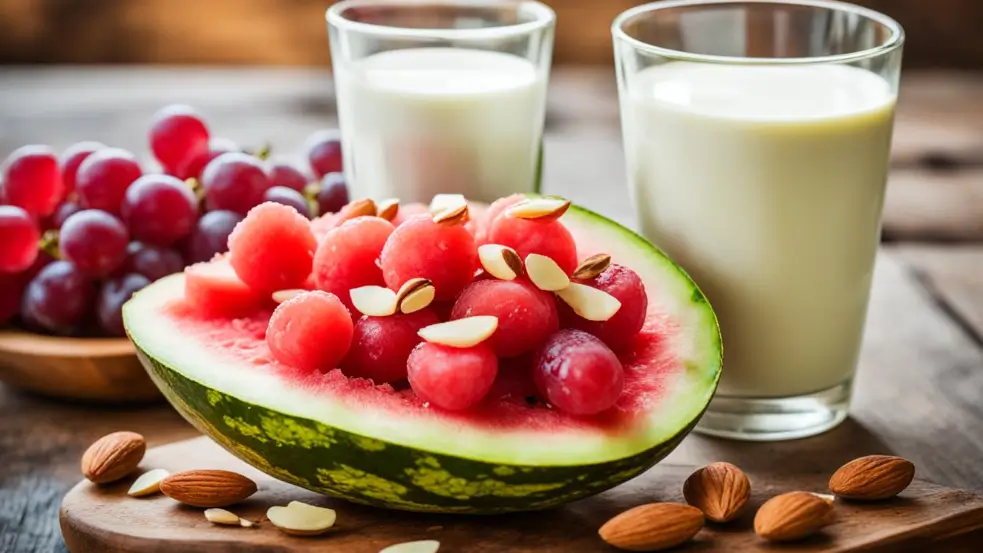
Some foods can help boost testosterone levels, but others might lower it. Research shows that soy products and processed foods can decrease testosterone.
Soy Products
Soy products like tofu, tempeh, and soy milk have phytoestrogens. These are plant compounds that act like estrogen in the body. This can lower testosterone production, affecting male reproductive health and hormonal balance.
Processed Foods
Processed and fried foods are high in unhealthy fats, sodium, and additives. These can harm testosterone levels. A diet full of processed foods, known as a “Western” diet, is linked to lower testosterone and sperm count in men.
To keep testosterone levels healthy, eat fewer foods that lower testosterone, like soy and processed foods. Add more testosterone-boosting foods to your diet. Talk to a healthcare expert for advice on improving your hormone levels through diet and lifestyle changes.
“A study found that ethanol consumption equal to a pint of whiskey per day led to significantly deficient testosterone levels in male volunteers.”
Lifestyle Factors Affecting Testosterone
Keeping testosterone levels healthy isn’t just about what you eat. Many lifestyle choices can also affect this important hormone. Things like stress and sleep quality play a big role in how much testosterone your body makes.
High stress can lower testosterone levels. To boost testosterone, managing stress is key. This means using relaxation techniques, practicing mindfulness, and taking care of yourself. Also, getting enough good sleep is vital, as not sleeping well can lower testosterone.
- Chronic stress and elevated cortisol can inhibit testosterone production
- Adequate, high-quality sleep is essential for maintaining healthy testosterone levels
- Regular exercise, especially strength training, can help increase testosterone naturally
- Avoiding excessive alcohol consumption and exposure to endocrine-disrupting chemicals is crucial
Exercise, especially strength training, can also help raise testosterone. On the other hand, sitting too much and drinking too much alcohol can lower it.
By changing your daily habits, you can help your body make and manage healthy testosterone levels. Doing things to reduce stress, getting enough sleep, and staying active can all help keep testosterone levels in check.
“Maintaining a healthy lifestyle, including a balanced diet, regular exercise, and adequate sleep, is crucial for supporting natural testosterone production.”
Conclusion
Greek yogurt might not boost testosterone much, but there are other ways to help. Eating foods like fatty fish, eggs, and leafy greens can support testosterone. This diet is key to keeping testosterone levels healthy as men get older.
Managing stress and staying active also helps boost testosterone. Addressing health issues that affect hormones is crucial. By making these changes, men can improve their testosterone levels naturally.
It’s important to focus on a balanced approach to boost testosterone. This means eating right, staying active, and taking care of your health. With the right steps, men can enjoy better energy, muscle, sexual health, and a better life overall.
Frequently Asked Questions
Does Greek yogurt increase testosterone in men?
Greek yogurt does not seem to significantly increase testosterone levels in men. While it offers benefits for weight management, digestion, and protein intake, it is not known to raise testosterone.
Why is testosterone important for men's health?
Testosterone is the primary male hormone and plays a crucial role in various bodily functions, including sex drive, maintaining bone and muscle mass, regulating body fat and metabolism, and producing red blood cells. Healthy testosterone levels are essential for overall men's health and well-being.
What are typical testosterone levels for men by age?
Normal testosterone levels vary with age:
– Ages 19-39: 229-902 ng/dL
– Ages 40-49: 208-902 ng/dL
– Ages 50-59: 192-902 ng/dL
– Ages 60-69: 190-902 ng/dL
– Ages 70-79: 190-902 ng/dL
– Ages 80-99: 119-902 ng/dL
What are common symptoms of low testosterone?
Symptoms of low testosterone can include reduced sex drive, difficulty concentrating ("brain fog"), muscle weakness, fatigue, depression, mood swings or irritability, sleep disturbances, and weight gain.
What foods can help boost testosterone levels?
Foods like fatty fish, eggs, and dark leafy greens are beneficial for testosterone production due to their rich content of omega-3 fatty acids, vitamin D, and magnesium. Avocados (healthy fats, magnesium, boron) and shellfish such as oysters and shrimp (zinc, selenium, omega-3s) can also be helpful.
Which foods should men limit or avoid for healthy testosterone?
Men should consider limiting or avoiding soy products, as they can mimic estrogen and potentially lower testosterone. Processed foods are also discouraged due to their high levels of unhealthy fats, sodium, and additives that may negatively impact testosterone levels.
How do lifestyle choices affect testosterone?
Lifestyle factors such as chronic stress, poor sleep, excessive alcohol consumption, and prolonged sitting can lead to lower testosterone levels. Making positive changes to diet and lifestyle is important for supporting healthy testosterone.
